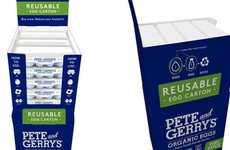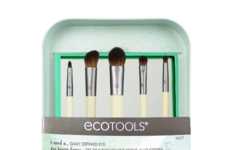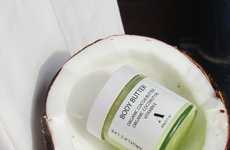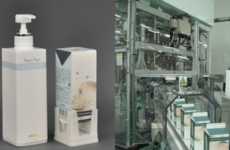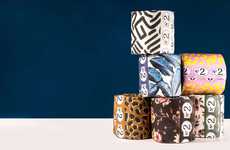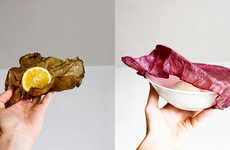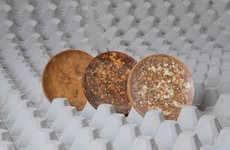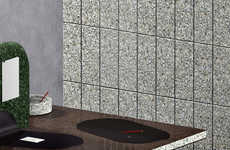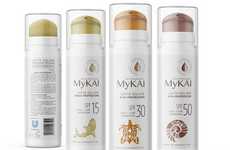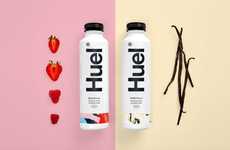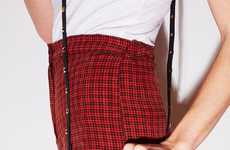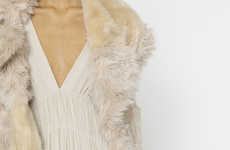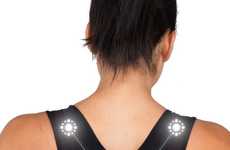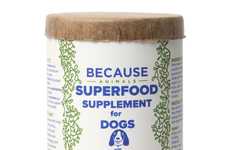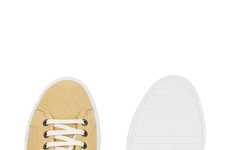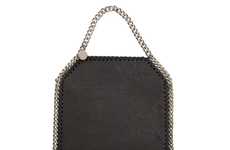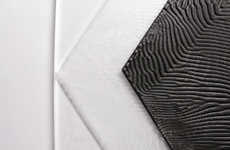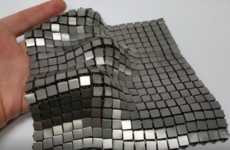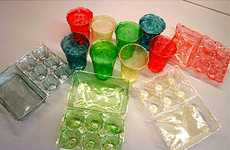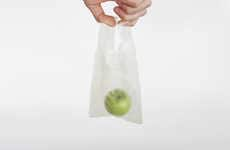
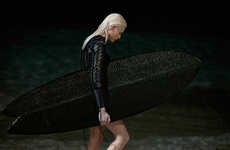

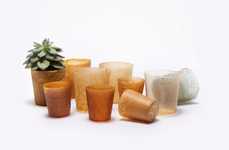
Designers & brands are using fish waste for eco textile & product alternatives
Trend - While brands are using fish waste to create more sustainable products, designers are utilizing it to create viable eco-conscious alternatives to traditional textiles. Extending to popular materials such as leather and plastic, such innovations push the sustainable agenda forward and work to combat climate change.
Insight - Consumers are increasingly wary about the existing and future consequences of climate change. As individuals become better educated on global issues of sustainability, they begin to demand more from industries that are considered to be big polluters. This is tied to a desire for a greener lifestyle as a means to secure the future of the planet and in light of this, consumers place emphasis on transparency and methods that are compatible with the circular economy.
Insight - Consumers are increasingly wary about the existing and future consequences of climate change. As individuals become better educated on global issues of sustainability, they begin to demand more from industries that are considered to be big polluters. This is tied to a desire for a greener lifestyle as a means to secure the future of the planet and in light of this, consumers place emphasis on transparency and methods that are compatible with the circular economy.
Workshop Question - In what ways could you update your business to be more sustainable?
Trend Themes
1. Upcycling Fish Waste - Designers and companies are utilizing fish waste to create eco-conscious alternatives to traditional textiles, such as Oskar Metsavaht's Amazonian fish skin garments and Lucy Hughes's MarinaTex made from fish scales and skin.
2. Bioplastics From Seafood Waste - Companies like Shellworks are developing bioplastics made from the shells of crustaceans, offering a potential alternative to single-use plastics.
3. Invasive Species Utilization - STAR's TECH 'ECO-ST' ice melter is an eco-friendly alternative to road salt formulated with invasive starfish biomass, demonstrating opportunities to repurpose waste from invasive species.
Industry Implications
1. Fashion and Textiles - The use of fish waste to create alternative textiles highlights opportunities for eco-conscious fashion brands to utilize waste streams in their production processes.
2. Plastics and Packaging - Innovations like bioplastics made from seafood waste and biodegradable packaging made from fish waste demonstrate opportunities for sustainable packaging alternatives.
3. Environmental Services - Efforts to repurpose waste from invasive species, such as the use of starfish biomass in eco-friendly ice melters, showcase opportunities for companies in the environmental services space to develop sustainable solutions.

